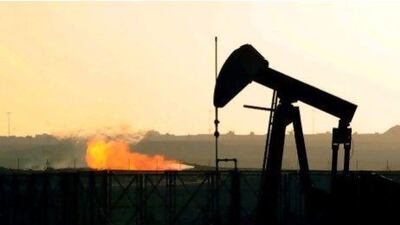A string of new debt sales in the UAE is spurring hope for a regional economic revival.
Economic troubles: Storm clouds gather across the world.
Last Updated: June 17, 2011
Billions wiped off global stocks Trading screens across the world flash red as sharp sell-offs take place everywhere. Read article
In Europe Spectre of Greek default looms Read article
In Japan Disasters look set to leave country stuck at zero Read article
In India Warning of unrest as trouble grows Read article
In the US Politicians in economic theatre of battle Read article
In China Curbing inflation is a balancing act Read article
But analysts say deteriorating global conditions endanger a return to business as usual after revolutions during the recent unrest in parts of the Middle East and North Africa.
Dubai sold US$500 million (Dh1.83 billion) of debt this week, a deal that was three times oversubscribed. A number of companies including Dubai's Majid Al Futtaim Holding and Abu Dhabi's Tourism Development and Investment Company are reportedly considering debt sales.
They are taking advantage of the first window of opportunity for bond issuances since revolutions in Tunisia and Egypt rocked the region in January and February.
There are also signs investors are increasingly bullish about Dubai. The cost of insuring the emirate's debt against default fell to its lowest point in 18 months last week.
Yet the implications of sovereign debt woes in Europe on the Middle East and North Africa "cannot be discounted if the effects threaten to become systemic, causing disruption of the global interbank lending market and increasing risk aversion", said Tim Fox, the chief economist at Emirates NBD in Dubai.
Oil prices pose another risk for the region in the context of the global economy. If problems in Europe spread and a recovery falters, oil prices could fall as demand weakens.
Tension is also lingering among the world's oil producers after the Opec meeting in Vienna this month failed to produce an agreement on raising production.
A third unknown, of course, is how continued political turmoil in parts of the Middle East and North Africa will play out. Egypt and Tunisia have yet to form permanent governments following their revolutions, and Libya and Syria are mired in conflict. Yemen, too, is a source of uncertainty both politically and economically.
Markets in the UAE, however, have been little affected by ongoing turmoil in parts of the region or from problems in Europe, the US and China. The Dubai Financial Market index rose about 3 per cent this week, encouraged by the emirate's bond sale. Abu Dhabi's stock index also rose by more than 2 per cent.

